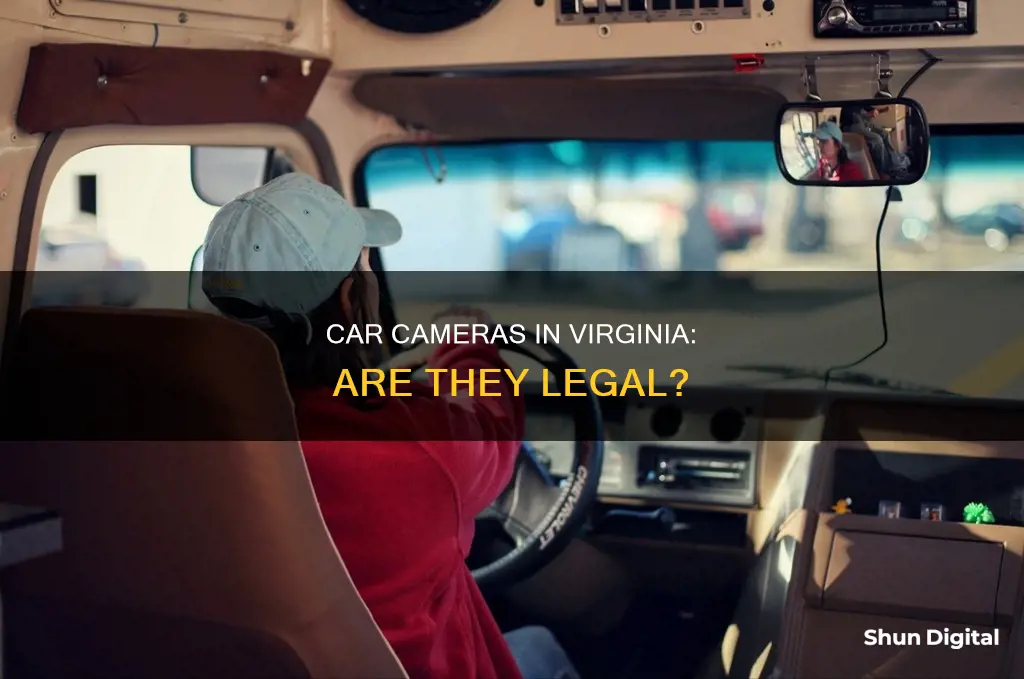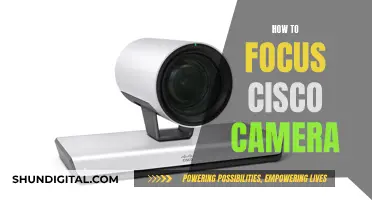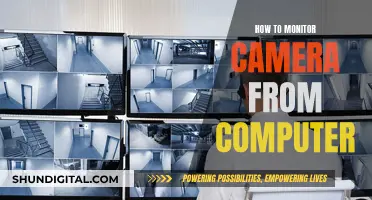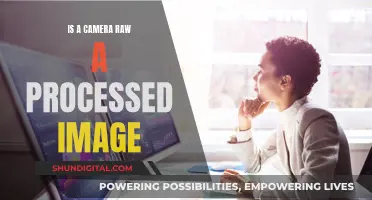
In the state of Virginia, car cameras are legal, but there are specific laws that dictate their placement. Dashcams are allowed as long as they are mounted in a way that does not obstruct the driver's view of the road through the windshield, front side windows, or rear window. While there are no federal regulations prohibiting dashboard cameras, some states have laws that affect their use. Virginia law allows recording in public areas or places where there is no reasonable expectation of privacy.
| Characteristics | Values |
|---|---|
| Are car cameras legal in Virginia? | Yes, dash cams are legal in Virginia. |
| Where can car cameras be mounted? | Car cameras can be mounted in a way that does not obstruct the driver's view of the highway through the windshield, front side windows, or rear window. |
| Are there any restrictions on recording? | Virginia law allows recording in areas accessible to the public or where there is no reasonable expectation of privacy. |
| Are there any regulations for camera placement? | Yes, in Virginia, it is illegal to mount a dashcam on any windows. The camera should be placed behind the rearview mirror or in a similar position that does not obstruct the driver's view. |
| Are there any regulations for camera usage? | Yes, Virginia law prohibits the use of televisions or similar displays that show moving images to the driver while the vehicle is in motion. This does not include displays for navigation, mapping, or rear-view systems. |
| Are red-light cameras legal in Virginia? | Yes, cameras that catch drivers running red lights are legal, and the footage is reviewed by police officers to determine if a citation should be issued. |
What You'll Learn

Dash cams are legal in Virginia
It's worth noting that Virginia law allows recording in areas accessible to the public or where there is no reasonable expectation of privacy. This means that dash cams can record footage of public roads and highways without violating privacy laws.
Additionally, while there are no federal regulations prohibiting the use of dashboard cameras, some states have specific laws regarding their use. In Virginia, there are no explicit laws prohibiting the use of dash cams, but it's always a good idea to stay informed about any updates to relevant laws and regulations.
Dash cams can be useful in a variety of situations. For example, they can help in accident disputes by providing a record of the events leading up to a collision. They can also be used to document road trips, keep track of a borrowed vehicle, or even capture unexpected events like a falling meteor. Furthermore, dash cam footage may be useful during interactions with police or in disputing traffic allegations.
However, it's important to remember that dash cams record everything, including any mistakes made by the driver. This footage could potentially be used against the driver in certain situations. Additionally, owning a dash cam could result in a police search and seizure of the camera's footage if an incident occurs. Despite these considerations, dashboard cameras are an effective way for drivers to protect themselves on the road.
Fine-Tuning Your Axis M3037: Focus Adjustment Techniques
You may want to see also

They cannot be mounted on windows
In Virginia, dash cams are legal. However, they cannot be mounted on windows as this would obstruct the driver's view of the road. The Virginia legal code states that it is illegal for such devices to "substantially obstruct the driver's clear view of the highway through the windshield, the front side windows, or the rear window".
Dash cams must be mounted in a way that does not obstruct the driver's view. This means that they cannot be placed on the windshield, side windows, or rear window. If a driver is found to have a dash cam obstructing their view, they may face legal consequences.
There are a few options for where to mount a dash cam in a car without obstructing the driver's view. One option is to mount the dash cam on the dashboard, either in front of the rearview mirror or on the passenger side. Another option is to mount the dash cam behind the rearview mirror, as long as it does not obstruct the driver's view. Some dash cams can also be built into the rearview mirror itself, providing a stealth appearance.
It is important to note that the laws regarding dash cam placement may vary from state to state. While dash cams are generally legal, each state may have specific regulations regarding their installation and placement. It is always a good idea to review the local laws and regulations before installing a dash cam to ensure compliance and avoid any legal issues.
By following the proper placement guidelines, drivers can take advantage of the benefits of dash cams while staying within the legal boundaries.
Focusing the Mobius Camera: Tips and Tricks
You may want to see also

They cannot obstruct the driver's view
In Virginia, car cameras, or dash cams, are legal. However, there are specific laws regarding their placement. Dash cams are typically mounted on a car's dashboard, but they can also be attached to the windshield or elsewhere.
Virginia law states that dash cams may be used as long as they do not obstruct the driver's view of the highway through the windshield, front side windows, or rear window. This means that the placement of a dash cam is crucial. If a dash cam is found to be obstructing the driver's view, it would be in violation of Virginia law.
The law states that it is unlawful for any person to drive a motor vehicle on a highway in Virginia with any object, other than a rearview mirror, sun visor, or other approved equipment, suspended from the vehicle in a way that substantially obstructs the driver's clear view of the highway through the windshield. This means that dash cams should not be mounted in a way that blocks the driver's view of the road or distracts them while driving.
For example, a dash cam mounted behind the rearview mirror or in the corner of the windshield would likely be compliant with the law, as it does not obstruct the driver's view. On the other hand, a dash cam mounted directly on the windshield in the driver's line of sight could be considered a violation.
It is important to note that the law focuses on the obstruction of the driver's view, rather than the specific placement of the dash cam. As long as the dash cam does not obstruct the driver's view, it should be legal in Virginia. This allows for some flexibility in the placement of dash cams, as long as it does not compromise the driver's safety or visibility.
In summary, while dash cams are legal in Virginia, it is important to ensure that they are mounted in a way that does not obstruct the driver's view. This ensures compliance with Virginia law and promotes safe driving practices.
Speeding Tickets by Camera: Moving Violations or Not?
You may want to see also

Red light cameras are legal in Virginia
In the state of Virginia, red light cameras are legal. Local governments are permitted to use automated systems to capture images of vehicles running red lights. However, there are strict regulations on their use, including signage requirements and a prohibition on using red light cameras for revenue generation. The use of these cameras is a contentious issue, with some arguing that they improve road safety and deter reckless driving, while others believe they infringe on privacy.
Virginia law allows localities to install and operate red light cameras to enforce traffic laws. These cameras are equipped with sensors that can determine whether a car comes to a complete stop before making a right-hand turn at a red light. While turning right at a red light is legal in Virginia, the law requires drivers to come to a full stop first. If the sensors indicate that a car did not stop, the cameras will activate and take photos of the vehicle.
The owner of the vehicle is responsible for a red light camera ticket, even if they were not driving, similar to a parking ticket. The maximum penalty for a red light camera ticket in Virginia is $50, and it is not considered a moving violation. Therefore, it will not go on the driver's record or affect their auto insurance rates.
The footage captured by red light cameras is reviewed by police officers, who determine whether a citation should be mailed out. This footage can also be used as evidence in court in Virginia, as long as it meets certain legal requirements. However, there are privacy concerns associated with the use of these cameras, as they raise questions about surveillance and the invasion of privacy.
The legality of red light cameras in Virginia is a complex issue, and there are strong arguments on both sides. While some studies have shown that red light cameras can reduce the fatal red light running crash rate, there are also restrictions on their use. For example, the law requires that signs be posted at intersections where red light cameras are in operation.
Fight Tennessee Traffic Camera Tickets: Your Rights, Your Defenses
You may want to see also

Dash cams can be useful in accident disputes
Dash cams are small devices that can be mounted on cars to record what is happening in and around the vehicle. They are useful because they capture events from the driver's perspective, providing an objective account of what happened and in what order. This can be extremely valuable in the event of an accident, particularly when there is a dispute over liability.
In the aftermath of an accident, it is common for those involved to forget certain details due to trauma. A dashcam can help to fill in these gaps, providing impartial information that is not limited by human memory. For example, it can capture crucial details such as another vehicle cutting you off or the other driver driving recklessly. This footage can then be used to strengthen a lawsuit or compensation claim.
Additionally, dash cam footage can help to resolve disputes by providing strong factual information, especially when there are conflicting accounts of what happened. It can also be useful when police reports are unclear or based on subjective statements from witnesses. The footage offers an unaltered series of events before, during, and after the accident, making it difficult to dispute.
However, it is important to note that dash cams do not play favourites. They will record and capture everything, including any mistakes made by the driver. This footage can then be used by insurance companies or legal entities to determine liability and build a case. As such, it is essential for drivers to be aware of the benefits and potential drawbacks of using a dash cam.
Focusing Tips for Luma Camera Analog 310
You may want to see also
Frequently asked questions
Yes, car cameras, or dash cams, are legal in Virginia. However, they must be mounted in a way that does not obstruct the driver's view of the road through the windshield, front side windows, or rear window.
Yes, cameras that catch drivers running red lights are legal in Virginia. If you are caught running a red light, a police officer will review the footage and decide whether to mail out a citation. The maximum penalty for a red light camera ticket in Virginia is $50.
Yes, Virginia law allows recording in areas that the public can access or where there is no reasonable expectation of privacy.







